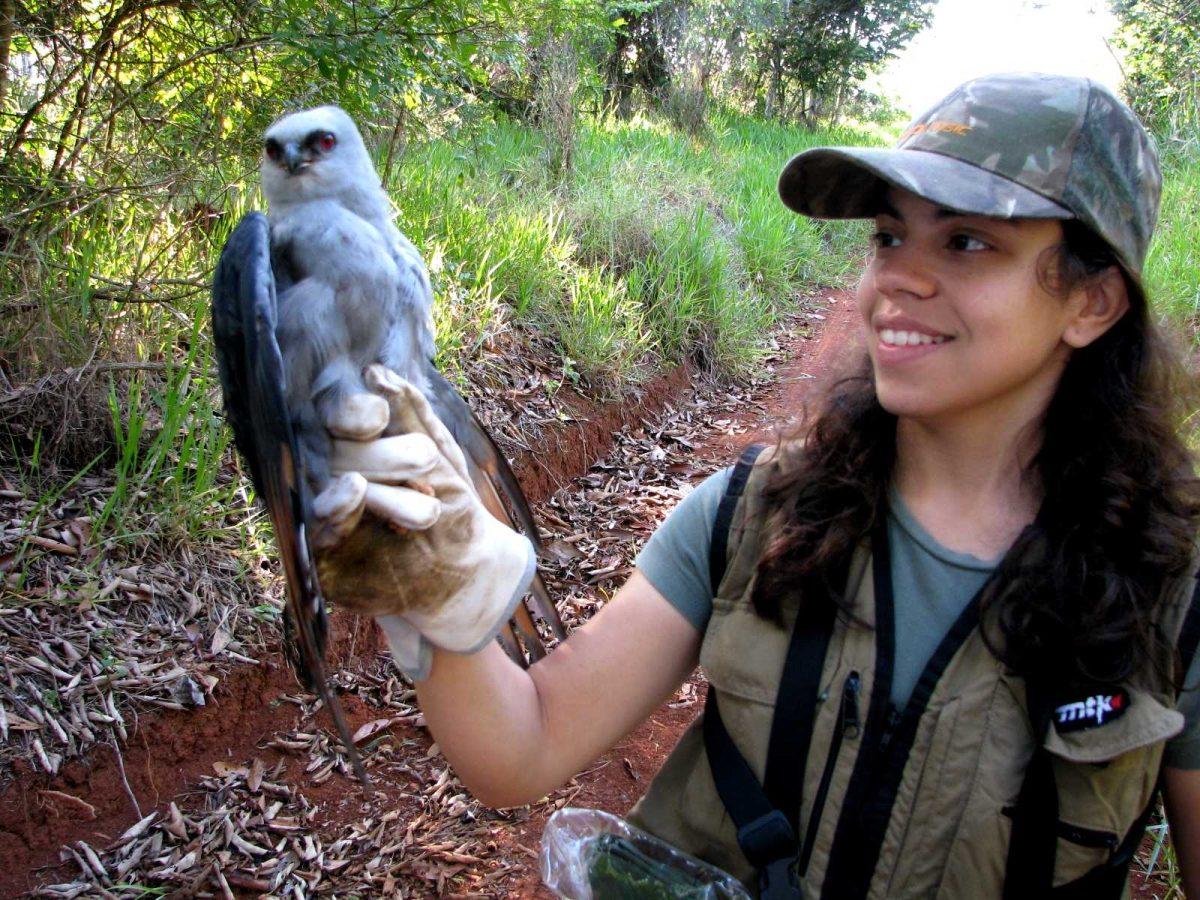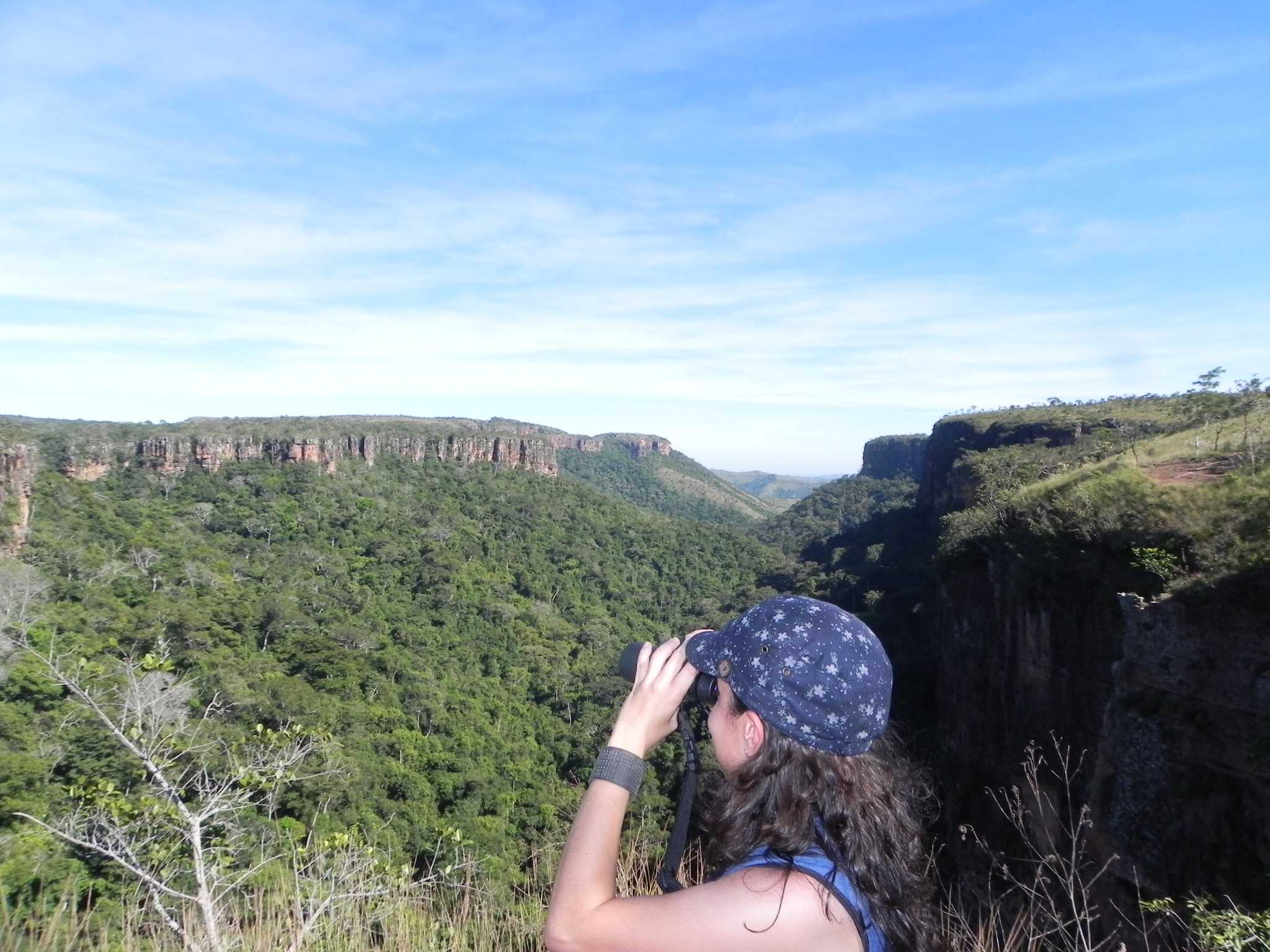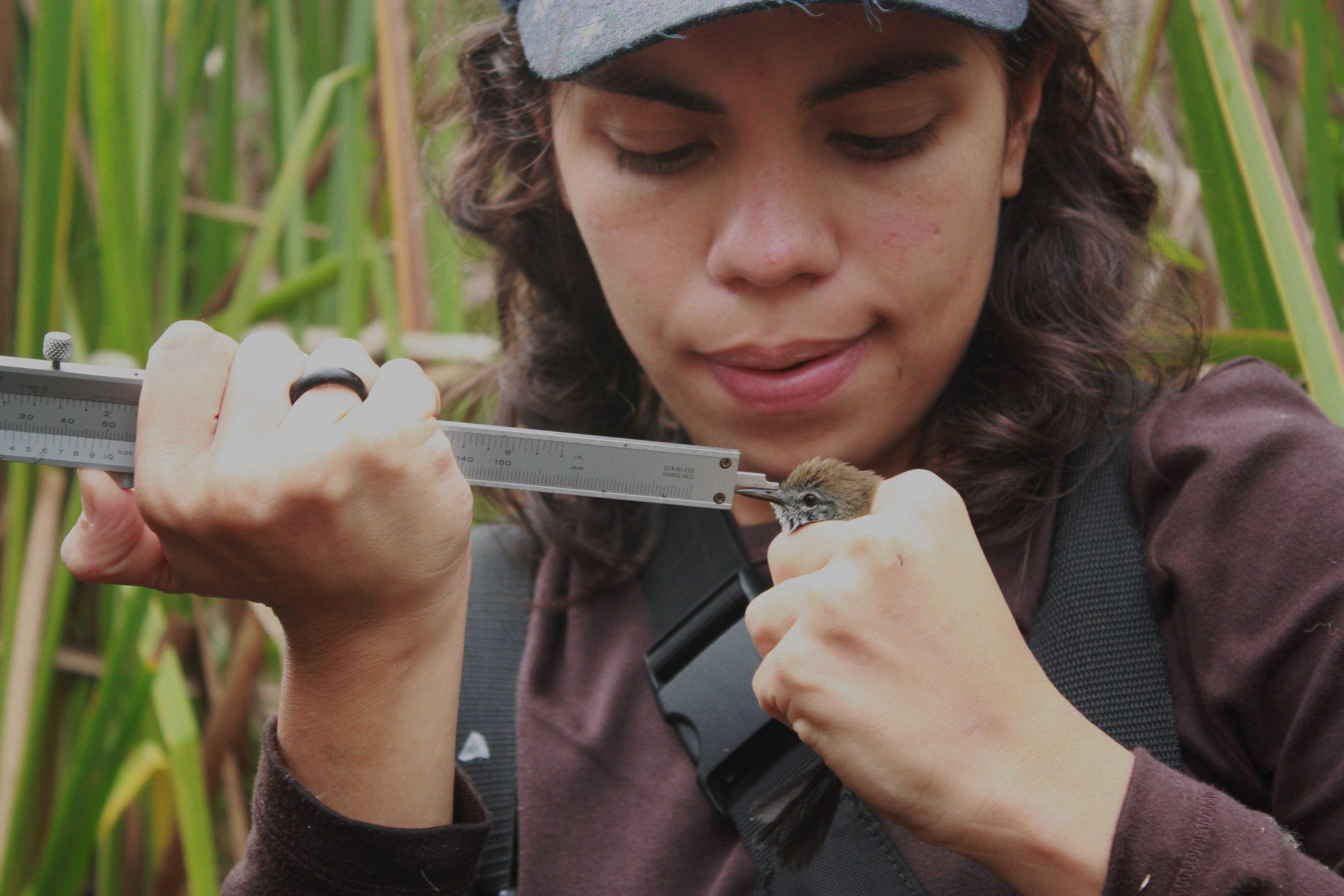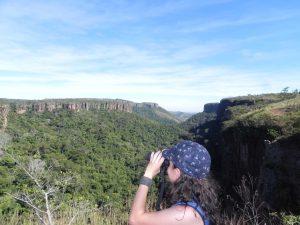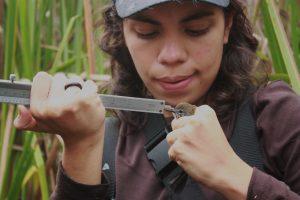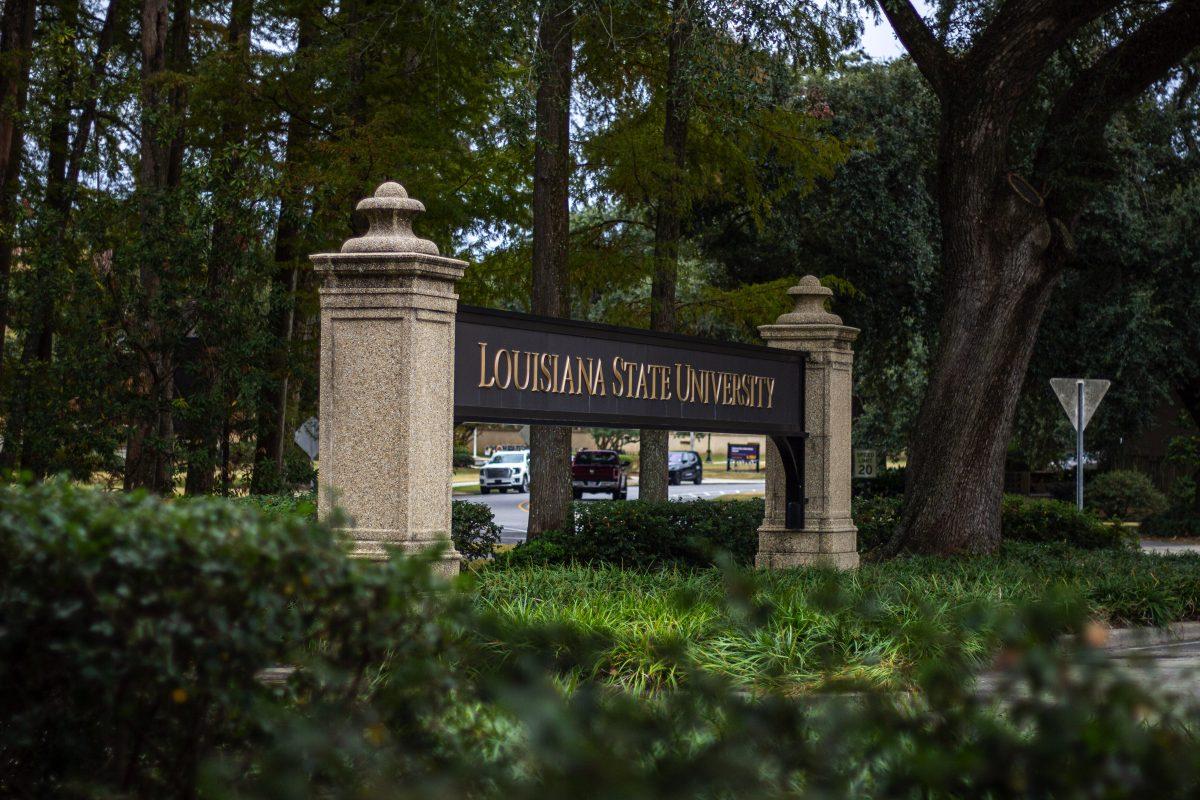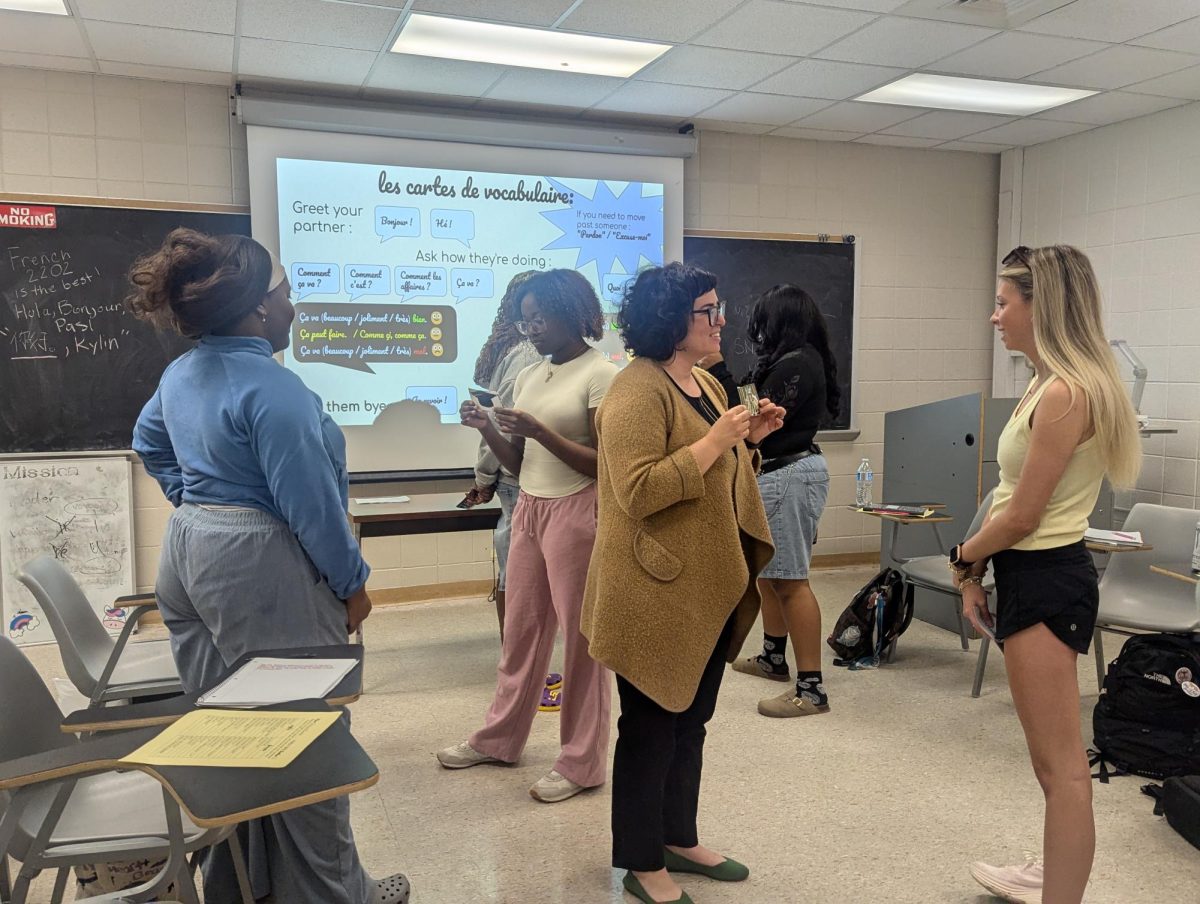While thousands of bird enthusiasts venture into forests and national parks each year, ornithology Ph.D student Glaucia Del-Rio is taking her binoculars to a more exotic locale — the Amazon Rainforest.
Del-Rio’s mission is one of several collaborations between the University and the University of São Paulo in Brazil. Four researchers and technicians from the United States and four from the University of São Paulo will join Del-Rio on the expedition.
The collaboration began as the brainchild of ornithologist Bret Whitney, an honorary associate researcher at the LSU Museum of Natural Science who has spent approximately 30 years researching birds in Brazil. Whitney said it’s important for young researchers to form connections in the increasingly global discipline, and the best place to do that is in the field.
That wisdom certainly holds true for Del-Rio. Whitney first met Del-Rio, then a graduate student at the University of São Paulo, in 2012 when he invited her to join a research expedition in Brazil. While on the expedition, Del-Rio met her husband, fellow ornithology Ph.D student Marco Antonio Rego, Whitney said.
Four years later, Whitney is handing the reins over to Del-Rio and Rego. With both due to return to Brazil following the completion of their doctorates, it’s important for them to have the experience to lead international expeditions in the future, he said.
Del-Rio said the mission will extend over approximately 40 days beginning June 20 and will conclude on August 1. The researchers will be primarily backpacking and caravanning along the Aripuanã River in Mato Grosso, Brazil, an area Whitney called the “single most dynamic region of the Amazon Basin.”
Del-Rio said she is thrilled to be returning to the field.
“You are observing your system and your birds 24 hours a day,” Del-Rio said. “You are camping with your birds, you are sleeping with your birds. That’s the best part for me.”
Aside from light clothing and camping gear, the researchers will travel with binoculars, cameras, microphones and recorders to perform an inventory of the local bird communities and gather important data, Del-Rio said. The inventory will help determine if new or understudied species are present in the region.
The researchers will also be collecting key samples to incorporate into the collections at both universities. Specimens’ skins will be stuffed to study the physical characteristics of the birds, and tissues from the heart, liver and muscles will be extracted and cryogenically preserved in liquid nitrogen for genetic testing, Del-Rio said.
The sacrifice, skinning and sampling will be handled primarily by Greg and Donna Schmitt, researchers from the University of New Mexico who have a long-standing relationship with the University’s ornithology department, Whitney said.
Whitney and Del-Rio said the sacrifice of specimens can be a sensitive subject for the public, but the genetic samples are
critical to the study of the genetic evolution and survival of the various species. Tissues can help determine trends in population movements, the divergence point of various species and genetic relationships between birds, Whitney said.
More than anything, birds have an incredible impact on the animal kingdom, he said, and studying them is key to understanding the health of the world’s ecosystems.
“It’s a way for us to track actions that humans take and see the consequences play out,” Whitney said. “It’s a window into our natural world that is watched very closely. There are millions of people around the world that pay very close attention to birds and bird populations, bird motions and movements — much more than any other vertebrates.”
The information revealed by studying the region’s birds could also be critical to the Amazon’s future.
Over the last 20 years, there’s been sizable destruction to the region as the forest is cleared for use by soybean farmers and cattle ranchers, Whitney said. Now, the main debate is whether hydroelectric dams should be installed throughout the Amazon to improve the country’s energy infrastructure.
The dams would inundate areas of the forest and destroy habitats and species well beyond just bird populations, Del-Rio said. Having scientifically rigorous data to illustrate the consequences of human development is critical to arguments for preservation, Whitney said.
For Del-Rio, a native of Brazil, preserving the biodiversity of the Amazon hits especially close to home. By completing this expedition, Del-Rio hopes to expand the region’s ornithological knowledge and help protect the country’s vast natural wealth, she said.
“I’m afraid that my country is trying to advance economically and become stronger in terms of economy, but it’s forgetting about its natural heritage,” Del-Rio said.
Ph.D student embarks on expedition in Amazon Rainforest
June 8, 2016
Ph.d student Glaucia Del-Rio is spending her summer on an expedition in the Brazilian Amazon.
More to Discover



